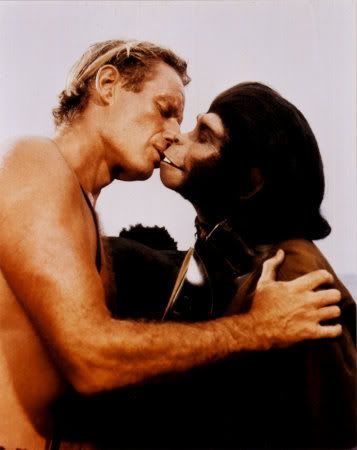 In the 1968 science fiction film, Planet of the Apes
In the 1968 science fiction film, Planet of the ApesI can't help but flash onto scenes from this movie - animals are in power, animals have rights, but people don't - when I read about recent laws enacted by Spain's parliament.
Spain's parliamentary environmental committee approved resolutions urging Spain to comply with the Great Apes Project, devised by scientists and philosophers who say our closest genetic relatives deserve rights hitherto limited to humans.
The Spanish government is now committed to update the statute book within a year to outlaw harmful experiments on apes in Spain. Keeping apes for circuses, television commercials or filming will also be forbidden.
Philosophers Peter Singer and Paola Cavalieri founded the Great Ape Project in 1993, arguing that "non-human hominids" like chimpanzees, gorillas, orang-utans and bonobos should enjoy the right to life, freedom and not to be tortured.
Next, we'll be teaching them to talk.
0 comments:
Post a Comment